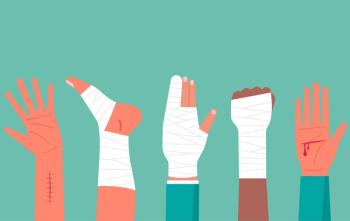
- Vol 34 No 2
- Volume 34
- Issue 2
The Legacy of Suicide
A personal account of a psychiatrist whose brother died by suicide.
(As told to Congressional staffers at a briefing on suicide prevention sponsored jointly by the American Psychiatric Association and the American Foundation for Suicide Prevention. The briefing was held on Capitol Hill on December 14, 2016.)
I made a wall to protect myself. It is not pretty; rather, ugly and constructed of dirty gray concrete. It keeps my thoughts, feelings, and images of my brother’s suicide in their place. Except when it doesn’t, such as when I’m with my family who knew him, and he is like the empty chair around the dining room table. There is always a place for him in our memories and hearts.
So, penetrating that wall on purpose for an event like today takes effort, but it’s so important to do and I am honored to be asked to do it. Fortunately, there is a window in the wall that opens into what I need to share.
I was 17 and my brother was 19 when I walked down the stairs of our home into the basement. My brother had an appointment with his psychiatrist, but he was not responding to my mother calling to him that it was time to go. She asked me to check downstairs.
As I descended the stairs, I knew he was dead. I had no warning, but I knew. I don’t know how. I only know that other survivors of suicide with whom I have talked have had similar experiences.
Still, I was not prepared for the sight of him hanging by a rope. Silently still and lifeless with tongue protruding. I was shocked, horrified, and panicked. I screamed.
Within a day, the guilt rushes in. If only I had done this or only did that. Also the blame, “Why didn’t the psychiatrist prevent this?” But such is magical thinking, as if the event could have been undone. Next comes stigma and shame. What do I say to others? Even years later, when people asked benignly, “Do you have any brothers or sisters?” I was at a loss for words. A simple question like this was more challenging than a final exam in existential philosophy.
The feelings and images persisted. Not a day went by over the next 10 to 15 years when I didn’t think of it despite professional help. Do not confuse help with weakness. My life was soaring in my new marriage, with the births of my beautiful son and daughter during that decade and longer, as well as my successful career as a faculty member at the University of Michigan.
In addition to guilt and shame, I and other survivors are likely at times to feel anger at or abandoned by our loved one for dying by suicide, to feel fear during our own down moments that we may succumb to suicidal depression, relief that their suffering is over, and the most painful feeling of all-that which all the others are designed to defend against-profound painful grief and sadness.
These are my feelings and reflections on a suicide in the family. I don’t know what it’s like for everyone, but for me it is like a bomb that explodes and not only kills the person who dies by suicide, but also seriously injures everyone nearby. Survivors embark on a decades-long journey where the best outcome is that the suicide becomes an essential part of who we are, an experience never forgotten while we become increasingly adept at living our own lives with greater acceptance.
When my own patients who are considering suicide tell me that either no one will care or others will get over it, I let them know that is not the case. I let them know that I care and we do not get over it.
Disclosures:
Dr. Brower is Professor of Psychiatry, University of Michigan, Ann Arbor, MI.
Articles in this issue
almost 9 years ago
Introduction: Violence Toward Staff in Health Care Settingsalmost 9 years ago
Depressive Symptoms Associated With Aggressionalmost 9 years ago
The Role of Psychiatrists in Countering Violent Extremismalmost 9 years ago
APA Position on Medical Euthanasiaalmost 9 years ago
Exercise and Depression in Youthalmost 9 years ago
A Crisis in the Public Service Psychiatric Workforcealmost 9 years ago
Top Papers That Can Change Your PracticeNewsletter
Receive trusted psychiatric news, expert analysis, and clinical insights — subscribe today to support your practice and your patients.






